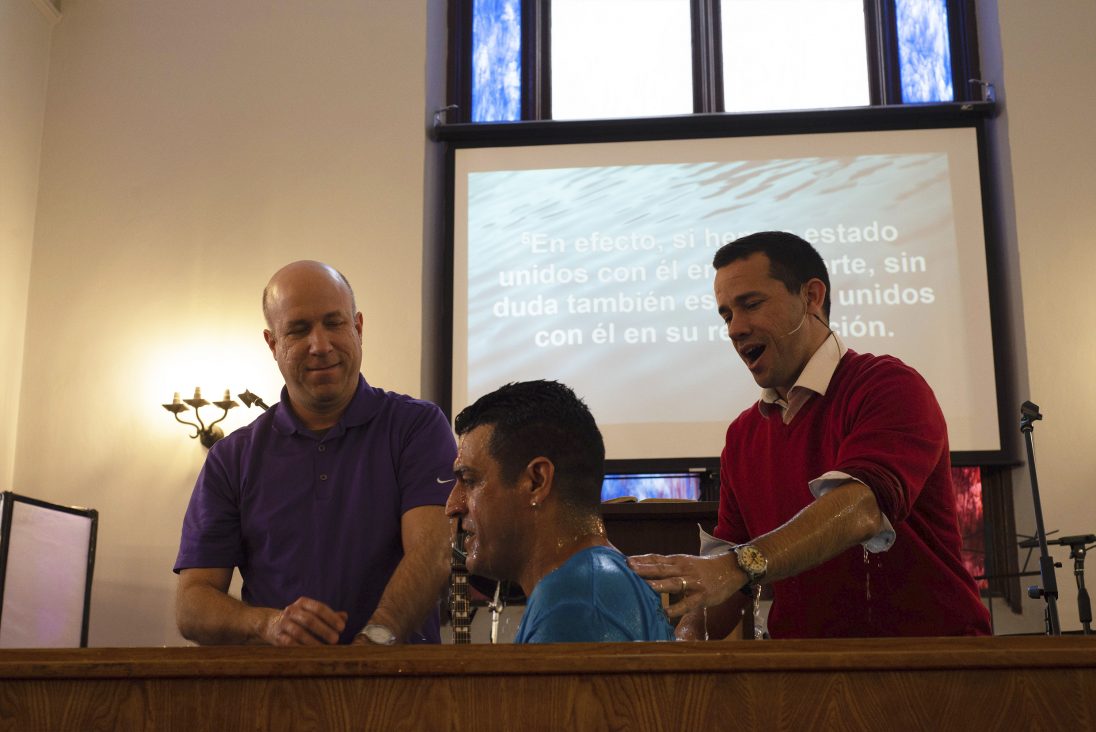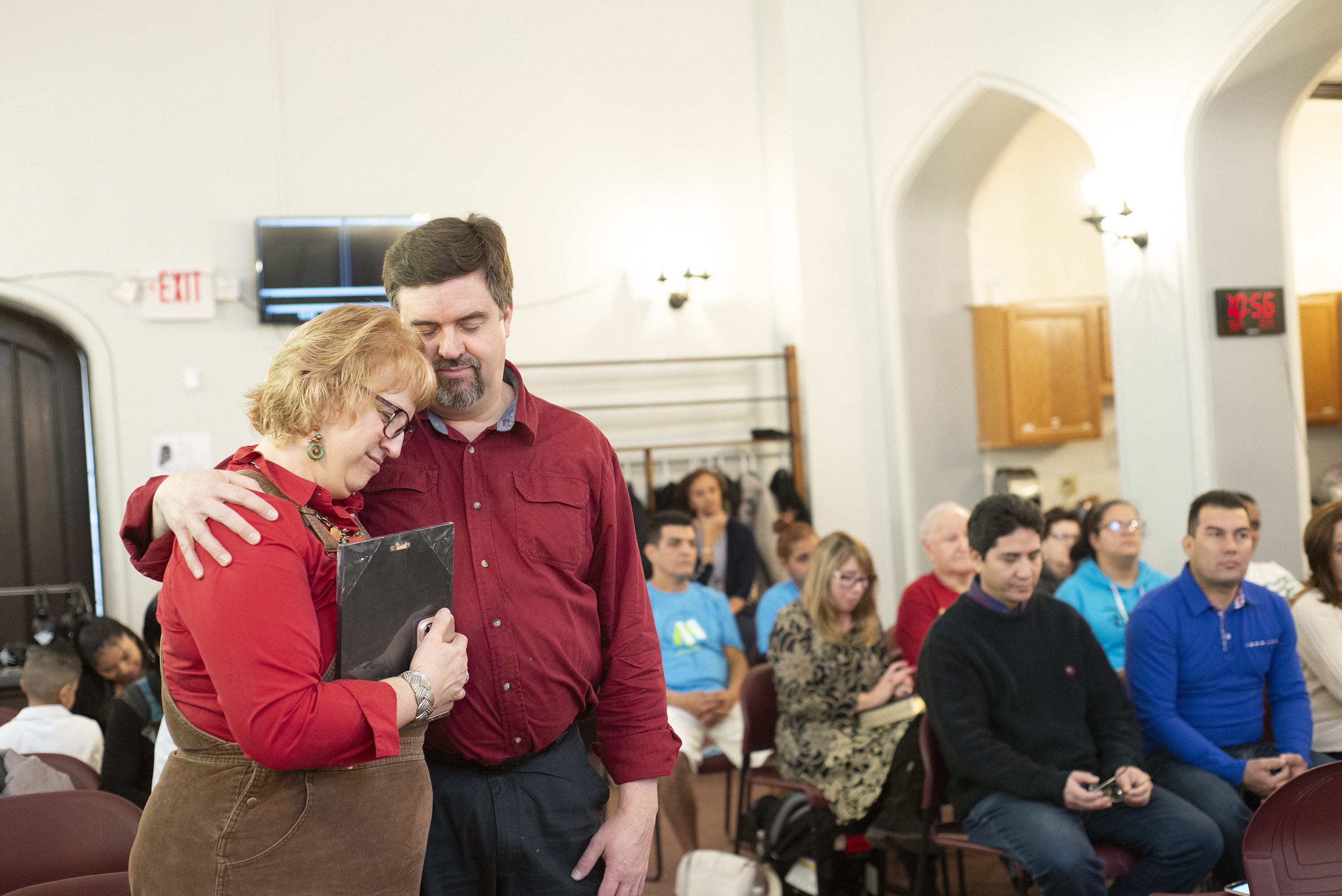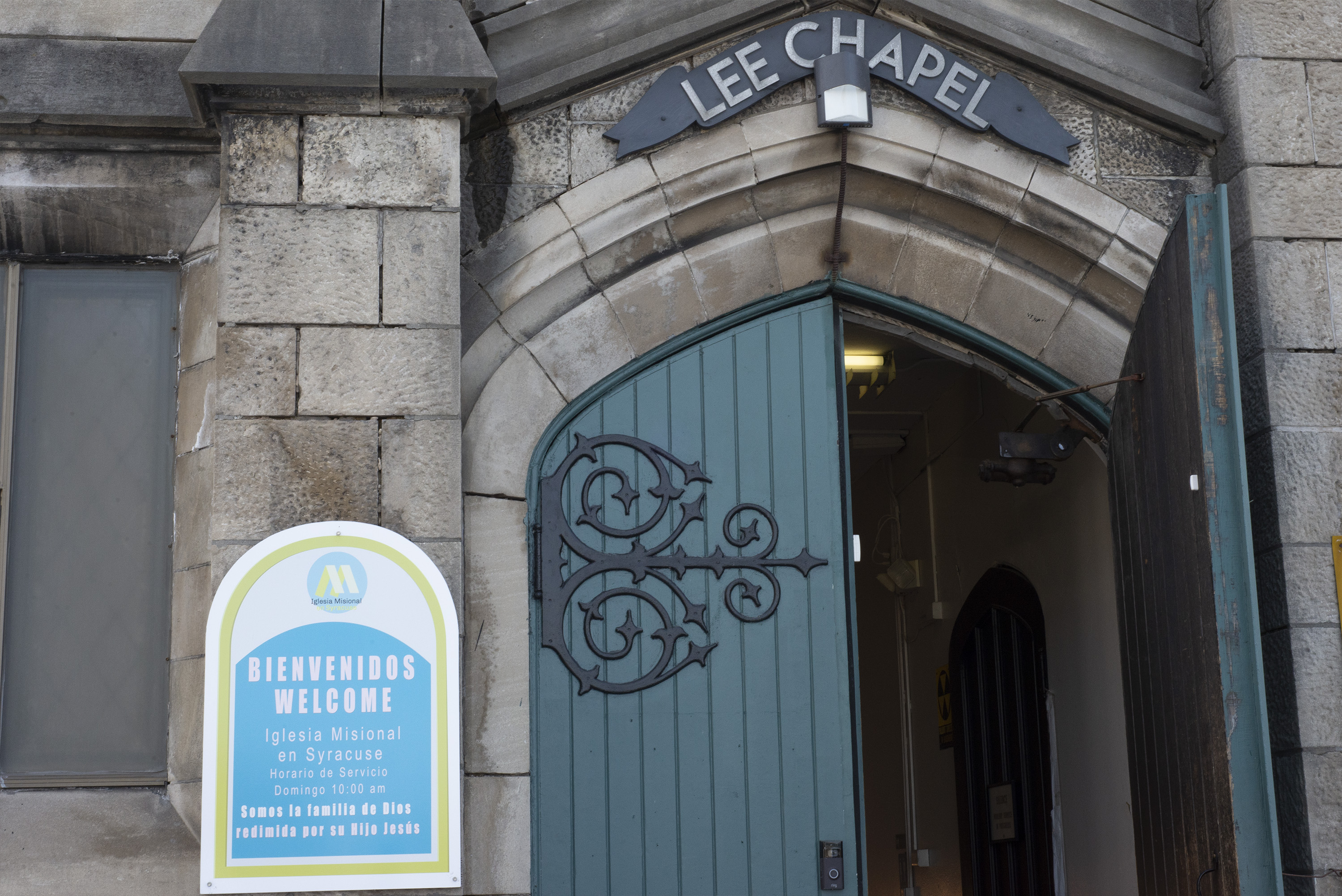Latinx church provides safe space for Cuban immigrants
Latinx church provides safe space for Cuban immigrants

The church at 620 W. Genesee St. fills with dozens of local families arriving for weekly services on Sunday mornings. But tucked away in the back corner of Missio lies Iglesia Misional, also known as Latino Community of Faith church. The strums of the guitar and beating of drums vibrates through its doors, as nearly a dozen Latinx families gather for two hours in a room filled with stories of hope after their personal journeys to Syracuse forced some to leave behind more than just their relatives.
From 10 a.m. to 12:30 p.m., the families spend the service singing worship, congratulating soon-to-be moms, exchanging gifts for children, sharing tears of joy, and topping it all off with a table full of desserts. Since 2016, Cuban immigrants, along with other members of the Latinx community, spend their Sundays at the church. They give thanks to God with prayers for all the good they say has come to their lives.
Reynier Martinez, pastor of Iglesia Misional, was supported in his transition to Syracuse before the church even existed, with help from the members of Missio Church. Adam Bregou, pastor of Missio Church, learned about Martinez, who had been a pastor in Havana, through a global networking program called Church Planting International. Due to their similar values and missions, Bregou and other leaders from Missio Church decided to partner with Martinez, bringing him and his family to Syracuse so he can be part of their team in 2015.

“We placed his family in our parish house that has 1-2 bedroom apartments,” Bregou said. “I was taking them to different appointments and to catholic charities to sign up for English classes.” During their appointments and meetings with catholic charities, Bregou and Martinez began encountering more Cubans in the area after a Cuban migration spiked in the U.S, with many of them resettling to areas in Central New York, such as Syracuse.
Due to the influx of Cubans in the area, Bregou and Martinez started Iglesia Misional. The church became a space of worship and support for the Cuban immigrants who were transitioning to Syracuse, as they were about to face a set of new challenges.
“The two greatest themes that stuck out was the need for English, and for relationships,” Bregou said. “We started English classes and monthly dinners where they could come together and enjoy their Cuban culture, to give them a little bit of a home away from home.”
In the midst of the church’s efforts taking off, former President Obama ended the wet foot/dry foot policy in 2017 which allowed Cuban migrants who enter the U.S. to stay automatically. This affected the church’s attendance, and resulted in English classes and monthly dinners at Iglesia Misional to end due to the decline of new Cuban families arriving to Syracuse.“The programs we still have are for the very few Cubans who still come,” Martinez said. “We used to have 30 to 40 Cubans come every month, now it’s three to four a month that come to Syracuse.”

Today, Missio Church and Iglesia Misional continue occasional bible studies at the homes of members of the congregation, as well as participating in community outreach together. This past summer, both churches partnered to start a new youth softball league for kids in the Near Westside community, a predominantly Spanish-speaking neighborhood with Cuban and Puerto Rican migrants.
“We do this for the love we have for God, and the love we have for our own communities,” Martinez said. Despite the decreasing attendance, those who have been helped by the support of the church are still committed to the congregation, like Yoandris Oconor. Oconor, who was a doctor in Cuba. He was able to come to Syracuse through a program that allows Cuban medical professionals and their families to resettle in the U.S. Although he was in search of better opportunities, Oconor now faces challenges getting back into the medical field, due to the language barrier and getting a license to practice in the U.S.
Forced to take an entry level job to support his expecting wife, Oconor drives for Lyft, where he is able to support the family he left back home in Cuba. Although he moved to Syracuse with just his wife, the unity of the church allowed him to find people to call family.
“This church is different, we are filled with love and knowledge of the community,” he said. Today, Oconor has plans of going back to school to become a nurse, and work his way back up into becoming a doctor.
“I want to keep moving forward and forward,” he said. “If God allows it.”
Editor's Note:
Some quotes were translated from Spanish to English.





